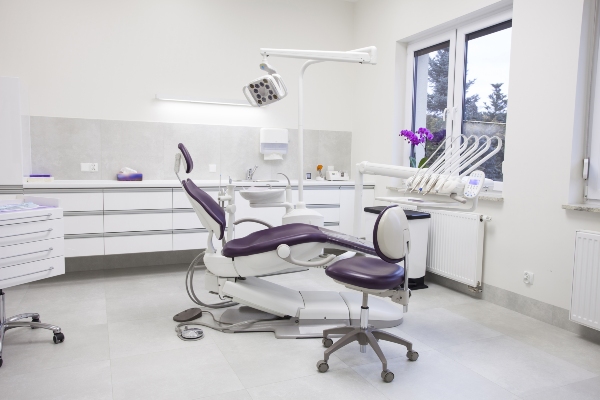Seeing an Emergency Dentist for a Mouth Sore

You should call an emergency dentist if you have a mouth sore. Most mouth sores are harmless and they usually go away on their own after a few days or remain unchanged. However, if your mouth sore does not go away after about a week, you should contact a dentist. Some sores can be serious and require the attention of a health care practitioner.
Emergency dentist and mouth sores
Mouth sores can be annoying and painful. Some of them appear inside the mouth, particularly on the tongue, gums, cheeks, lips or palate whereas others can appear outside the mouth, under the nose and even on the chin. Mouth sores are often caused by oral cancer or viral, bacterial or fungal infections. Some common types of mouth sores are canker sores, leukoplakia, cold sores and candidiasis.
Canker sores
A canker sore is a small open wound or ulcer that appears in the mouth. The sore can make talking and eating uncomfortable. In rare cases, these sores can be very large. There may either be one or more ulcers and these sores recur at varying time periods.
The exact cause of these sores is not known. Things that may cause minor sores are stress and tissue injury. The sores can also be caused by particular foods and medications. Underlying health conditions, particular diseases and nutritional problems can increase the chances of a complex canker sore for some people.
Canker sores often begin as bumps or red spots. A person who has it may have sores in the mouth that are round, gray or white, with a red border. These sores are usually painful. A canker sore may produce a burning or tingling sensation before any other symptoms appear.
There is no permanent cure for these types of sores. Treatment for them is usually for pain or discomfort. Treatment for long-lasting, large or extremely painful sores may include oral medications, cautery, nutritional supplements and mouthwashes. Canker sores usually come back.
There are some measures a person can take to get them less frequently. Avoiding particular foods that irritate the mouth and chewing gum can help. People should brush their teeth after meals with a soft-bristled brush and floss daily. This will help keep the mouth free of any foods that may trigger sores.
When to see a dentist
Some sores are usually wider and deeper than others. The deeper ones often take a longer time to heal and can get infected. A person should see a dentist if canker sores are too painful and over-the-counter medications do not help. Seeing a dentist is also ideal if sores recur frequently, cause difficulty swallowing or eating or cause fever and swelling.
Takeaway
Mouth sores can be painful and some may be an indicator of something more serious. You should consult a dentist if your sore does not go away or if you suspect you have an infection. Other reasons to consult an emergency dentist are if your sores recur frequently, make it hard to eat or swallow or cause swelling and fever. If you have any questions about mouth sores, contact a dentist today.
Request an appointment here: https://www.newyorkdentaloffice.com or call New York Dental Office at (212) 548-3261 for an appointment in our New York office.
Check out what others are saying about our services on Yelp: Read our Yelp reviews.
Recent Posts
Scheduling an initial visit to a dental practice marks the first step toward maintaining optimal oral health. Proper preparation for this appointment ensures a seamless experience, allowing the dental team to provide the highest-quality care possible. Understanding what documents and information to bring facilitates efficient care, reduces stress, and helps patients feel comfortable and informed…
Dental practices provide essential oral health services to patients of all ages. These services range from preventive and restorative treatments to cosmetic and emergency procedures. Understanding the types of care available at a general dental practice can help patients make informed decisions about their oral and overall health.Preventive care is a cornerstone of dental practice…
Regular visits to a dental practice provide essential care for achieving and maintaining optimal oral health throughout a patient’s lifetime. Beyond treating immediate dental concerns, a dental practice emphasizes preventive care, patient education, and tailored treatments designed to safeguard oral health for years to come. Understanding the role of professional dental care underscores the importance…
Endodontics is a branch of dentistry dedicated to saving teeth by treating problems inside the tooth. It focuses on the health of the tooth's pulp and roots, essential to your smile's overall strength and function. Endodontics could be the key to relieving discomfort and preserving your natural teeth if you are experiencing tooth pain or…



